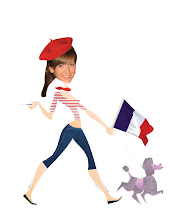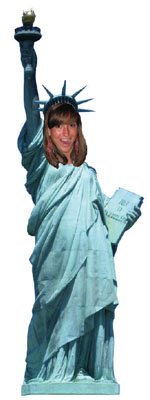I am officially a wine-o. Names like Pauillac and Domaine de la Fourmone actually mean something to me. I can say confidently that 2002 was a horrible year for Bordeaux, as the rains came early, diluting any precious sugar in the grape crop. Robert Foster is my new god. I know the subtle, yet vibrant differences between pinot noir grapes and cabernet sauvignon. I even do the incredibly obnoxious, yet oh-so-pretentious gurgling as I take a sip, letting the wine aerate in my mouth, then slowly swallowing to allow the drink to hit every part of my tongue.
I have converted to the religion of wine. My new faith is all due to one greatly experienced man who described a wine as "transcendental" at the tasting at my apartment last night. Bob is a friend of Pam (the director of Abroadco) and he has been in love with wine since he took his first sip at a dinner party in NYC his junior year of college. Thirty years and many, many bottles later, he is a professor of Classics at the University of Chicago (he is currently on loan to a university in Pisa) and a conisseur of French and Italian wines.
Nine Abroadco students came for the tasting. I had decorated the apartment with fresh flowers and candles, fumbling my way through first time hosting in hopes of impressing my intellectual, wine-loving guest. Of course, the first sentences out of Bob's mouth were 1) You smell lovely. Are you wearing perfume-- it can mix badly with the wine's bouquet? 2) Candles and flowers are such a good idea-- the bouquet thing again. 3) Lovely apartment-- where should I set these precious bottles of ambrosia?
Oh well. I promptly blew out the candles, moved the flowers to another shelf, and the tasting commenced.
We started with a white from Provence. The vineyards of Provence are famous for their roses and heavy-handed reds, but not so much for their whites, and after learning the gurgle and truly tasting the white, I had to agree with Bob when he said, "Eh."
The second was a rose that Bob has personally bottled straight from the cask at a tiny vineyard close to Marseille. Bob advised us to always stick to the cheapest rose, as a 2 euro bottle often tastes the same as a 10 euro bottle. We nodded our heads in agreement, as this is the kind of news poor college students studying abroad always want to hear.
We then moved on to the reds, the "true masterpiece of France" Bob proclaimed jubilently as he excitedly filled our glasses. Three from Provence, one from the Rhone Valley. The wines progressively became more tanic and oaky as we continued. They were all very strong, yet very classic, Bob said, and not for the light of heart.
We finished with my absolute favorite, a white desert wine called "Muscat de Beaumes de Venise". It tasted as if I were drinking honey, but smoother, and with a hint of floral.
I now understand what all the fuss is about, as I truly didn't before. A glass of wine sitting before you is like a mystery that must be solved in three sips or less. Seeing the glass in front of you doesn't contribute to your appreciation of the wine, therefore, you must rely entirely on your sense of smell and taste to decipher subtle flavors. Where does it hit your tongue? What is the finish? Does it taste consistent as it slides down your throat? And then, was it a good year? What combination of grapes were used? Where was it grown, and therefore, what kind of soil were the grapes grown in? There is so much to learn, and it takes years and years to develop a pallet worth buying expensive bottles of wine about.
I had such a great time, and I'm anxious to learn more. Bob was such a character, and the adjectives he used to describe the wine (intelligent, sexy, discreet) turned every bottle into a character as well, whom I got to know over a few sips and swallows.
4/11/09
Subscribe to:
Post Comments (Atom)



No comments:
Post a Comment